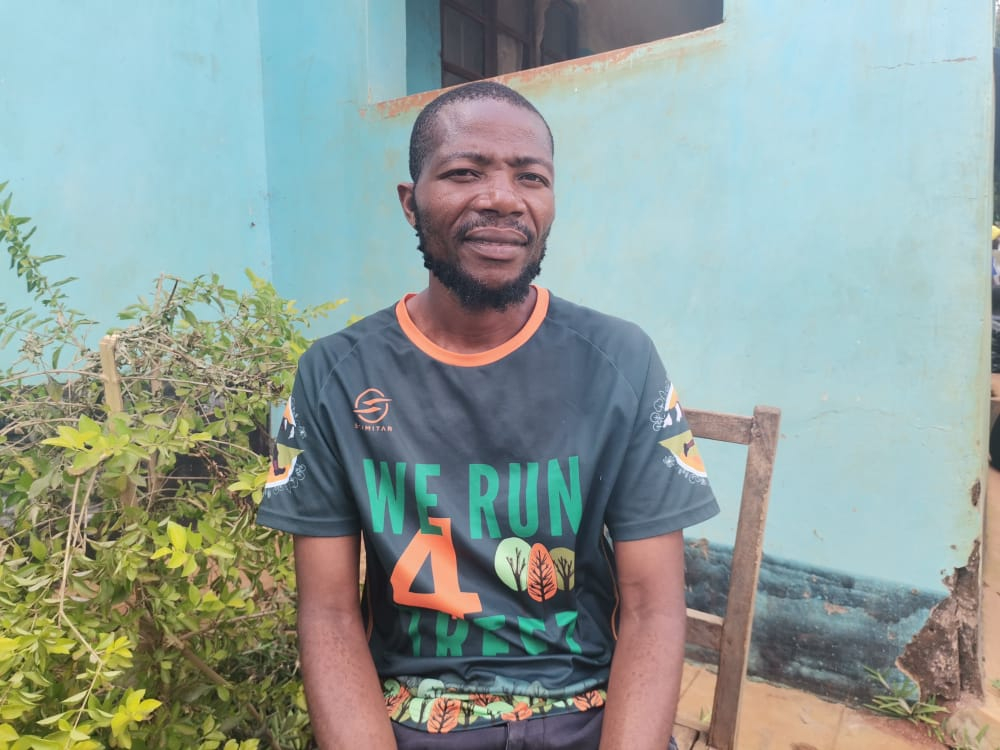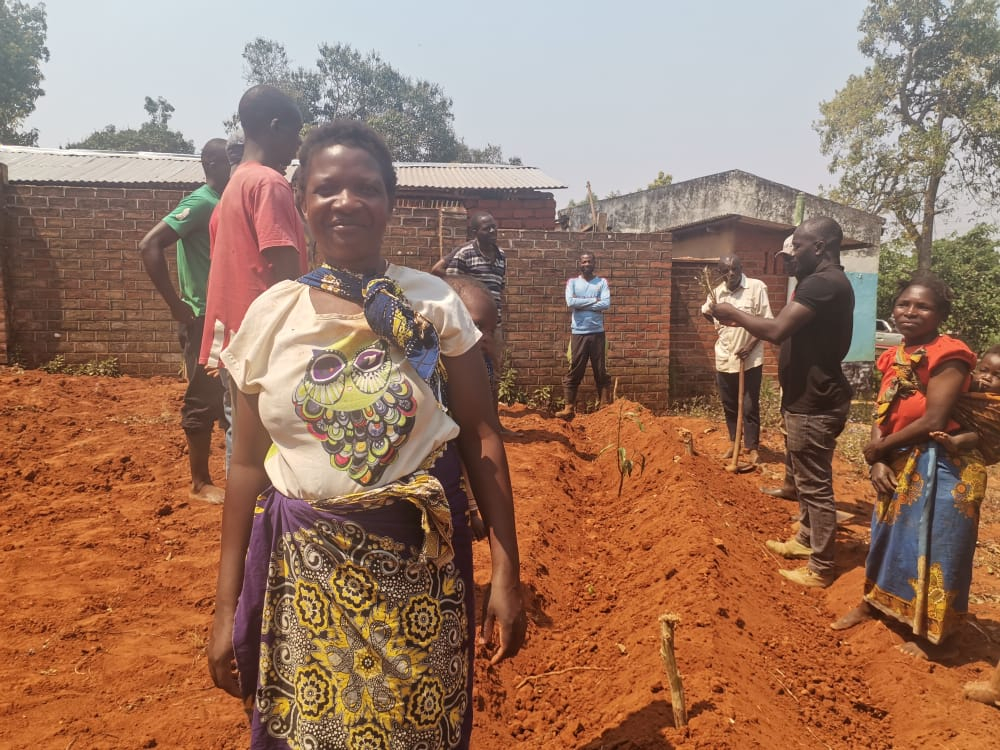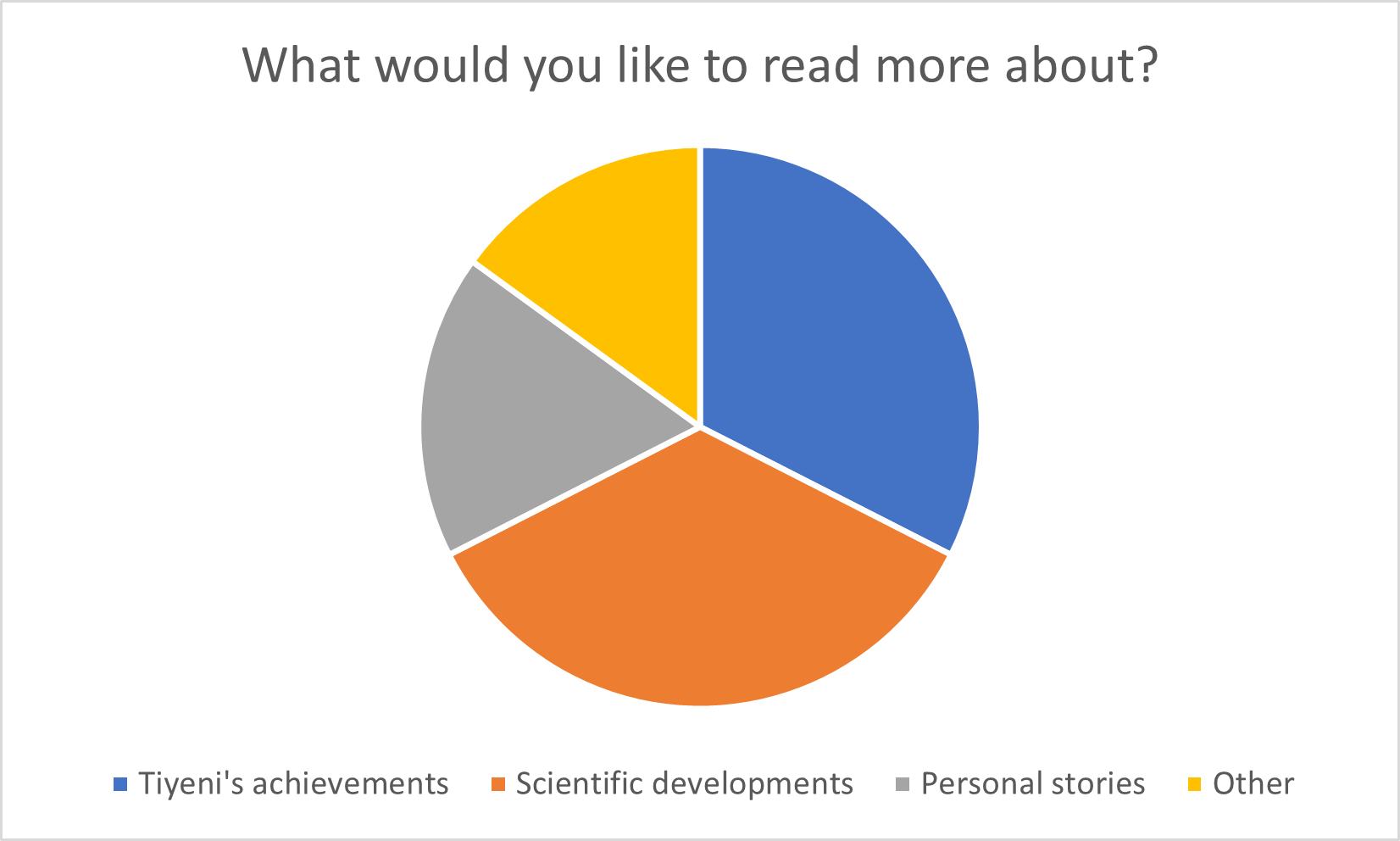October newsletter
19 October 2022
Deep Bed Farming in practice
Tiyeni’s Training Manager, Godfrey Kumwenda, recently caught up with a couple of stakeholders in Zomba District to find out how Deep Bed Farming is working for them.
First, he spoke to Jonas Beyadi, Community Liaising Officer for Zomba TREEZ. Zomba TREEZ aims to mitigate the damage caused by the loss of the biomass and help reduce the effects of climate change in the Zomba area. Through raising awareness, tree planting, promotion of natural regeneration and fire prevention they aim to increase water retention, reduce soil erosion, provide clean air and water, and protect and preserve Malawi’s biodiversity. Tiyeni is an implementing partner in a TREEZ - SGG co-operation in Malawi, training community groups in Deep Bed Farming.

How did you learn about Deep Bed Farming? How is it working for your farms?
We learned about Deep Bed Farming for the first time last year after our visit to Mulanje farmers where we saw it in practice. Deep Bed Farming has made improvements in our farms, especially the soil; we have reduced soil erosion and it has helped us to recharge the ground. This is in line with the conservation efforts that we are making starting from the mountain as well as down to the community.
To all the farmers across the country who may need to start Deep Bed Farming, I should encourage them that they should do so because it helps to retain moisture, reduce soil erosion, and increases yields in the first year.
How could Tiyeni help further to make Deep Bed Farming a success across Malawi and beyond?
Tiyeni must reach out to many farmers nationwide so that people should learn about Deep Bed Farming and start practicing it. They should observe the difference by comparing it with other farming technologies that they have been using and see if it helps. Then Tiyeni can roll it out across the country.
You can hear more of Godfrey’s interview with Jonas here.
Godfrey also talked to Dorothy Twaya, a farmer who lives in Ndwati Village in the Zomba District.

What difference does Deep Bed Farming make to your crop?
I am able to realize high yields as compared with conventional farming. With conventional farming, I could get two bags of 50kg maize, but now I am getting five bags of 50kgs from the area of 0.4 hectare. I have also learned about compost making which I use to apply in my crop fields.
How has Deep Bed Farming helped you and your family?
I adopted Deep Bed Farming last year and I did it on a small piece of land. The little harvest I got from that small piece of land has already made an impact on my household and it has really motivated us as a family that if we can cultivate the whole field, it could help my family to reduce food insecurity and improve our livelihood greatly. That is why this year I have planned to expand Deep Bed Farming in my field.
What would you say to other farmers thinking about adopting it?
I would encourage my fellow women across the country particularly in the Zomba District to start adopting Deep Bed Farming technology so that they can have high yields and alleviate hunger and poverty at the household level. I also urge the local leaders to be in front of advocating for technologies that would help the community to come out of hunger and improve environmental management at the village level.
Meet one of Tiyeni's donors

Sarah Litchfield runs a catering company, Elm Green, in East Sussex in the UK. Elm Green has been a partner of Tiyeni's since 2021, and a proportion of the business profits support Tiyeni's farmers. With Sarah's fundraising and advocacy, this has raised more than £1,600. Thank you to all involved!
Sarah told us more about why supporting Tiyeni is important to her.
"I am a caterer in the South East of England. The starting point of my day in the kitchen is food that has been produced with care for the farmed ecosystem and its people.
I have spent time in Africa and Papua New Guinea and I wanted to support a charity that helps in a country where harsher conditions makes growing food more difficult; one that has no reliance on hefty machines or expensive technologies and is managed by people in their communities. It is inspiring that Tiyeni's methods are becoming impactful in an ever increasing area because the sight of crop success spreads the word.
I would love our worldwide farming future to become more diverse, local and resilient. In Malawi, Tiyeni demonstrates that it can also see humans as part of the ecosystem, build soil carbon as part of our defence against climate change and encourage biodiversity."
The Results Are In!

Thank you so much to everyone who completed our short survey in September. It’s really helpful for us to get your feedback.
We thought you might like to see some of the results.
We were delighted to find that 97% of the people who replied said that they read the newsletter at least sometimes and 52% said ‘always’. That’s fantastic news!
In terms of what you want to read about, it looks as if we are broadly on the right track. The attached chart shows what you said. And the people who said ‘other’ mainly said ‘all three’!
The survey is now closed but we still want to know what you think. If you have an idea for a newsletter article or want to share some feedback, please email us at info@tiyeni.org. We'd love to hear from you. In the meantime, thank you again for all your support.
Movement for good

Help support Tiyeni's work to eradicate food insecurity in Malawi by nominating us as a Movement for good for the Benefact Group. Head to https://movementforgood.com/#nominateACharity and type in 1194177 - TIYENI and select poverty as our charity type. The more votes, the greater our chances! You can vote from anywhere in the world!